By: Paolenlal Haokip***
The continuing insurgency in northeast India suggests the failure of the counter-insurgency strategy in place over the years. Considering the threats to human, economic and national security that it poses, a re-examination of this strategy, the presumptions underlying it, their shortcomings, and the formulation of an alternative counter-insurgency plan acquires importance.
Counter-insurgency in India has largely been synonymous with army deployment. Army Headquarters is known to have a counter-insurgency bureau to draw up strategies to bring an end to insurgency. Civil and military intelligence agencies are placed in over-drive. The Police take the back seat in fighting insurgents. Their role is limited to keeping the arrested under-trials in custody, after the army or paramilitary forces have done with their ‘arrests.’ The Judiciary is unquestioningly taken to be just, although no authority exists to probe the integrity and accountability of the Judges. Whatever local support is enjoyed by insurgents is sought to be diminished by rough treatment of the civilian population in areas of militant activity by conducting combing operations; the message is, “keep away from insurgents or suffer the consequences.” Often, civilian support to insurgent groups is taken as a given, resulting in their widespread repression. Insurgency is considered a hindrance to development, to be dealt with severely. This is based on the premise that development will arrest insurgency, which is a late realization that lack of development is at the root of it all.
Surrenders are encouraged, and surrendered militants are often promised benefits that are later found hard to fulfil. Patronage to insurgents by local political figures is often established, but never seriously sought to be undone. Allegations of human rights violations by the army are rampant, but hardly any convictions occur. Worst of all, the brutality of insurgent violence is often used to justify excesses committed by the security forces. Lastly, a posting in insurgency affected areas is considered a punishment, and the general attitude of officials here is of utter disdain or excessive paternalism, (both are invariably resented by the locals) and never quite one of facing a challenge, requiring service or in-house dedication.
Deploying the military, trained to fight enemy hostility, to deal with civilian populations is bound to have, and has had, disastrous consequences. However, this is still resorted to with impunity. Therefore, the rationale, if any, behind this dispensation needs proper analysis. Is it an admission of the wretched state of the police forces, and their incapability to ensure law and order, which is their raison d’etre? Is insurgency much more than a law and order problem, having wider political and security implications, to handle which the police forces are incapable? Or, is it a combination of both factors?? What have the concerned state governments and central ministries done to improve the capability of the police forces? If insurgency has wider political and security implications, what are the initiatives taken to deal with them? Are the political and security initiatives in place adequate to address the problem? If military deployment was inevitable, are there any arrangements to train the deployed units in terms of attitudinal re-orientation, respect and observance of human rights, cognition of civilian and ethnic sensibilities? These are pertinent questions that have to be answered positively to effectively counter the menace of insurgency which is caused by alienation, political, developmental, ethnic, religio-cultural, economic and geographical, and combinations thereof.
Some analysts have concluded that most insurgent organizations in the northeast are nothing more than illegal money making enterprises. While one could find some truth in this, it is also true that insurgency serves this very purpose for corrupt government officials. In states like Manipur, one can safely assert that corruption is the main hindrance to effective counter-insurgency operations. An arrested insurgent can become a petty thief in the police records if the inspector in charge receives sufficient “Cha thaknaba” (a local term for bribe, which literally means ‘for the purpose of having tea’). The Judicial system is in such a wretched state that lawyers no longer argue the merits of a case but evolve conduits for? reaching bribes to Magistrates, and are rated in terms of their personal rapport with concerned Magistrates, and their ability to favorably influence judgments through bribes. A terrible spin-off of this messy police and judicial system is that unscrupulous police officers can arrest innocent and ignorant civilians on charges of insurgency to extract bribes. A young man once subjected to this injustice almost always proves to be a ready recruit for insurgent organizations.
Counter-insurgency must be multi-pronged and cross-governmental to be effective. The various developmental ministries in the government have to play a concerted role. Lack of development and poverty are responsible for disaffection with the state and rise of insurgent movements. Enhanced economic progress can be an effective check on the inclination towards revolt. The developmental departments in the government thus have a major role in countering insurgency. The Police establishment should also be reformed to acquire integrity, accountability, capability and devotion. Measures should be taken to make the police free from political interference. The judiciary has to be made accountable. A judicial ombudsman to whom aggrieved litigators can make appeals could be a good beginning. The army and paramilitary security forces engaged in counter-insurgency should be given special training which emphasizes human rights education, respect for human and constitutional rights, and respect for ethnic and communal sensibilities. There is also an urgent need to establish an independent and powerful Bureau of Internal Affairs within the security forces which can probe excesses and abuse of authority without fear or favor to punish the indicted.
Ordinary citizens in insurgency affected areas should also be made aware of their rights and obligations. This could significantly deter the abuse of authority by the security forces, combined with an effective grievance redressal mechanism such as the proposed Bureau of Internal Affairs. The promotion of legal awareness can be achieved by a combination of governmental efforts and the involvement of non-governmental organizations. Wide publicity of basic rights through newspapers and pamphlets, seminars and their inclusion in the curricula of educational institutions would be useful. Besides, knowledge of basic rights can also be disseminated through established channels of community communication like the church, the village councils, and student bodies, depending on their feasibility in relation to a particular group or community. The chronic insurgency in the northeast is, besides other factors, a product of withering governance and the predominantly military approach to counter-insurgency.
By its very nature, insurgency is a challenge to the existing state of governance. It is a revolt against inadequate governance, which failed to meet the economic, socio-political, ethno-cultural and physical security needs of various communities, especially those on the periphery. Therefore, the first step towards tackling insurgency is to make the administration provide good governance. An efficient, effective and accountable administration, which sincerely and adequately meets the needs of the people would be the most viable counter-insurgency mechanism.
Counter-insurgency should also have a political content. When the crisis in governance gets prolonged, common grievances can acquire political hues. The grievances of a particular region or community that could have been redressed by timely administrative attention, when ignored, acquire political overtones that require political solutions. It is insufficient then to seek purely administrative and developmental remedies. Optimal doses of political decentralization and self-governance then become necessary to arrest the tide of political dissent. This is especially true of many insurgency movements in the North-East. Therefore, along with efforts to ensure good governance, an objective assessment of political decentralization and its timely administration is advisable given the unabated insurgency in the region. Research in the last decade has suggested linkages between education, especially the teaching of history, and conflict. The content and interpretation in history text books, the inclusion or exclusion, inadvertent or otherwise, in chronicles of national histories, and the emphasis laid on civilizational, racial, religious and center-periphery contests are believed to inculcate conflict. Besides, the nationalist discourse, a dominant theme in most historical texts, which legitimizes nationhood, based on differences with ‘others’ tends to influence regional, ethnic and religious communities. Those on the periphery of a state whose heroes are not featured as heroes in the national historiography, whose cultures finds no mention in the national culture and whose religion is identified with ‘others’ and vilified are extremely vulnerable to the temptations of secessionism. Augmented by the lack of economic welfare and the collapse of governance, these disillusionments can give rise to revolts. This thesis fits the situation in North East India.
The focus should now be on evolving the peace-promoting role of education, and explore how education can bring about an understanding of the sources of conflict, promote conflict management, and contribute to post-conflict resolution and reconciliation. Given the comparatively high rates of literacy obtained in the North Eastern states, this approach deserves serious attention and could be tried out rather than continuing with the old and hackneyed carrot and stick policy.
*** The article was originally published in two parts on October 25, 2002 and November 29, 2002 at http://www.ipcs.org
*** The writer is a Research Officer at the Institute Of Peace and Conflict Studies. *** The article has been published with due permission from the Institute of Peace & Conflict Studies (IPCS).
*** You may visit IPCS's website at http://www.ipcs.org for further readings.
Dec 10, 2007
Subscribe to:
Post Comments (Atom)
ABOUT ME
- Letminlen Haokip
- New Delhi, Delhi, India
- Kalem Uve!I am a student from Delhi University,brought up this site to acknowledge the forgotten Past-herioc Kuki Warriors.I am dedicated and patriotic chap with perseverance to fight for the cause of the Kuki people.I would like to take this opportunity to cal all my comrades to come forward and express views and opinion pertaining to the Kuki socio-political promblems arising in our present generation.Come on!! TAH CHAPA'S ! TAH CHANU'S!!with a revolutionary attitude,militant in action and a nationalist in outlook to rescue the Kuki people shattered dreams of chaos,confusion and dis-integration Awake!! comrades,the KUKI nation needs you!!!!
ABOUT MUVANLAI
Muvanlai is synonimous with the Kuki people.Muvanlai literally means an "Eagle".An Eafle comfortably gliding over its territory without any restriction is an apt anology in order to get the correct meaning.This,precisely was what the Kuki-life in the past millenium.Freedom and sovereignity was what the Kuki posessed in their land,Zale'n-gam.
Recent Comments
SHOUTS
You are Visitor No.
"KATHANG"E KATHANG"E KANAM"

Muvanlai Poll
Count Down Timer
TRADITION ECHOES

Muvanlai Search Engine
KS0(S) Cultural Troupe

Muvanlai Sudoku
New way of Greeting:It happen only in Manipur

MUVANLAI ARCHIEVE
- Apr 22 - Apr 29 (2)
- Jun 3 - Jun 10 (1)
- Oct 28 - Nov 4 (3)
- Dec 2 - Dec 9 (1)
- Dec 9 - Dec 16 (7)
- Dec 16 - Dec 23 (1)
- Jan 6 - Jan 13 (1)
- Jan 20 - Jan 27 (1)
- Mar 2 - Mar 9 (1)
- Mar 23 - Mar 30 (2)
- May 25 - Jun 1 (1)
- Feb 15 - Feb 22 (1)
- Mar 22 - Mar 29 (2)
RECOMENDED SITE
- Kukiforum Network,USA
- Kuki Inpi(Government)
- Kuki Intern.Support Centre
- The Thadou-Kuki Langauge
- Kuki Baptist Convention
- Thadou-Kuki Langauge
- Kukis of NC Hills
- Kuki in Wikipedia
- NE TV Kuki News
- Kuki Christian
- KSDF Burma
- KNO Home Page
- Kuki Black Day
- KSO New Delhi
- KSO Mumbai
- KSO Bangalore
- KSO Kolkatta
- KSO Guwahati
- KSO Shillong
- KWS Bangalore
- KWS Delhi
- Kuki Gems and Jewellery
- Official Website of Manipur
- Jews of Manipur and Mizoram
- Ministry of Tribal Development
- Tamenglong District
- Churachandpur District
- Senapati (Sadar Hills) District
- Chandel District
- Ukhrul District
- Sangai Express
- The Hmar's Homepage
- The Vaiphei's Homepage
- Zo Students Association
- E-Pao News
- Kangla Online
- Zogam News
- ZSP Delhi
- The Anti-Tamanthi Dam Committee
- Electoral Maps of Manipur
- Manipur Bhawan
- Community Information Centre,Manipur
- Information, data and analysis on terrorism, low intensity warfare and sectarian strife in Manipur.
NORTH EAST SUPPORT CENTRE & HELPLINE
To assist North East Indians studing and working in Delhi and NCR.
Helpline Numbers:
Delhi West - 9810554901,
Delhi South - 9818314146,
Delhi North - 9911886062.
Central Coordinating
Helpline -9868184939
Fax 011-42811185
Email nesupportcentre@gmail.com,
Fax +911142811185
HOW TO FILE FIR
Simple way to file FIR
http://www.nehelpline.net/
Helpline Numbers:
Delhi West - 9810554901,
Delhi South - 9818314146,
Delhi North - 9911886062.
Central Coordinating
Helpline -9868184939
Fax 011-42811185
Email nesupportcentre@gmail.com,
Fax +911142811185
HOW TO FILE FIR
Simple way to file FIR
http://www.nehelpline.net/
THE KSOD MEGA RALLY

JUSTICE DELAY IS JUSTICE DENNIED
A KUKI COUPLE IN THE 18TH CENTURY

NAMPI KINEPNA K.S.O
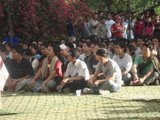
Grand reception of detained Kuki students at JNU for more than 72 hrs at Tihar Jail. the national capital by Delhi Police.The students were holding a peacefull rally against the arrest of 400 kukis by UNLF near Indo-burma border
SIMSAHEI PAHNA ZOUGAM NOM

AW! PENNA THINGLHANG GAMNOUM

HAVE MERCY ON US! O MOTHER INDIA!!

BOOKS ON THE KUKIS
- The Lost Tribe of Isreal
- The Thadou-Kukis : William Shaw
- The Kukis of Manipur:By Dr.T.S Gangte
- Kuki Disturbances in Tripura, 1860-61 By:Nalini Ranjan Roychowdhury
- Souvenir : The Benei Menashe Council, India By:L Henkhogin Haokip
- The Kukis of Tripura : a socio-economic survey By:Ram Gopal Singh
- A hand book of Kuki custom:By C.G Crawford
- The Lushia-Kuki Clans By Lt.Col William J.Shakespear
- In search of identity: By H Khamkenthang Kuki-Chin Baptist Union
- The Indigenous World 2002-2003 By Diana Vinding
- Low Intensity Conflicts in India: An Analysis By Vivek Chadha
- Human Rights in the New World Order By Shamsi, Nayyar
- The Inductions of Ethics and the Ethics of Individual Life By Herbert Spencer
- Tribal Situation and Development in Central India By Shiv Kumar Tiwari
- The Anthropology of North-East India: A Textbook By Tanka Bahadur Subba, G. C. Ghosh
- Unrepresented Nations & Peoples Organization, Yearbook 1995 By Mary Kate Simmons
- Hill Politics in North-east India By Shibani Kinkar Chaube
- The Sino-Tibetan Languages By Graham Thurgood, Randy J. LaPolla
- History of Human Marriage Part 3 By Edward Westermarck
- Politico-Economic Development of the Tribals of Manipur: A Study of the Zomis By Guite, Chinkholian
- Social Movements in North-East India By Mahendra Narain Karna
- The Schedule Tribes of India
- Land Rights of the Indigenous Peoples of the Chittagong Hill Tracts, Bangladesh By Rajkumari Chandra Roy
- The Purums: An Old Kuki Tribe of Manipur : By Tarakchandra Das
- Authority and Legitimacy: A Study of the Thadou-Kukis in Manipur By Asok Kumar Ray
- WHY MUST WE BE MIZO? By Priyadarshni (alias Tingneihoih) M. Gangte
- Between Ethnography and Fiction: Verrier Elwin and the Tribal Question in India By Tanka Bahadur Subba, Sujit Som, K. C. Baral
- Policing India in the New Millennium By P. J. Alexander
- Indian and Oriental Armour By Lord Egerton, Wilbraham Egerton Egerton, Indian Museum
- Unfamiliar relations: Family and History in South Asia
- Encyclopaedia of Indian Tribes By Shyman Singh Shashi
- Miscellaneous Papers Relating to Indo-China By Reinhold Rost
- An ethnographic survey of the Kuki-Chin-speaking peoples of the Assam-Burma border
- The North East Frontier 1837-1901 ByIan Heath
- Bleeding Manipur: By Phanjoubam Tarapot
- My Experiences in Manipur and the Naga Hills By James Johnstone
- My Experiences in Manipur and the Naga Hills By James Johnstone
- India and the World: Selected Articles from IDSA Journals By N. S. Sisodia, Sujit Dutta
- Miscellaneous Notes on the Kuki of the Chittagong Hill Tracts, Pakistan By:Claude Levi-Strauss
- Origin and Growth of Christianity in Tripura: With Special Reference to the ... By Sukhendu Debbarma
- A short account of the Kuki-Lushai tribes on the north-east frontier : (districts Cachar, Sylhet, Nága Hills, etc., and the north Cachar Hills), with an outline grammar of the Rangkhol-Lushai language and a comparison of Lushai with other dialects
UNITY IN DIVERSITY

ARE WE THE LOST TRIBE OF ISREAL??

The Kuki National Flag with a David Star
KUKI ARMED MOVEMENT
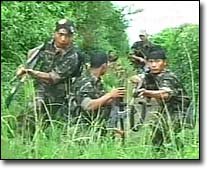
"result of india's ignorance for acknowledging the Kuki indigeneous space"
KUKI BEAUTY ON THE RAMP
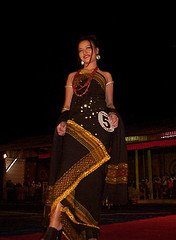
Miss Kut
HEAR OUR CRIES !!!! MR.SMS! (SARDAR MANMOHAN SINGH)
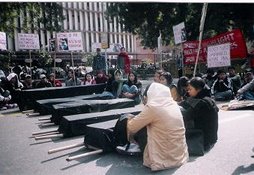
The KSOD COFFIN RALLY
DO INDIA LOVE COMMUNALISM???
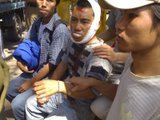
Injured Kuki students at RML hospital,brutually lathicharged by Delhi Poice
A NEW HOPE, A NEW DREAM FOR THE KUKIS

WE WANT REFERENDUM!!!!!!!!

MARCHING TO THE CALL OF NATION

MOL LE LHANG SANG JONG NAMPI THUPEH JUI LOU THEI KAHI POUVE

DO THE KUKIS HAVE FAITH ON THE INDIAN DEMOCRACY?


WE WANT JUSTICE AT ANY COST

YOUTH OF THE NATION

KUKI VIP"S AND NEWS MAKER
HIS EXCELLENCY
PU.SHEHKHOLEN KIPEN,IFS
INDIAN AMBASSADOR TO UKRAINE
http://www.indianembassy.tj/english/about_us/posolstva_sng.htm
SMT.NENGCHA LHOUVUM
INDIAN AMBASSADOR TO LEBANON
http://mea.gov.in/pressrelease/2004/10/18pr02.htm
MR.ZAI KIPGEN
http://www.rediff.com/sports/2001/sep/01golf.htm
PU W.L HANGSHING,IAS
http://persmin.nic.in/CivilList/AsOnToday/QryProcessCLNew.asp#Bottom
PU.SHEHKHOLEN KIPEN,IFS
INDIAN AMBASSADOR TO UKRAINE
http://www.indianembassy.tj/english/about_us/posolstva_sng.htm
SMT.NENGCHA LHOUVUM
INDIAN AMBASSADOR TO LEBANON
http://mea.gov.in/pressrelease/2004/10/18pr02.htm
MR.ZAI KIPGEN
http://www.rediff.com/sports/2001/sep/01golf.htm
PU W.L HANGSHING,IAS
http://persmin.nic.in/CivilList/AsOnToday/QryProcessCLNew.asp#Bottom
MEDIA COVERAGE ON KUKI & NE OUTFIT ACTIVITIES
KUKI OUTFIT DEMANDS STATEHOOD:
EXCLUSIVE VIDEO COVERAGE WITH A KUKI OUTFIT
http://www.ibnlive.com/videos/23463/kuki-outfit-demands-statehood.html
WE BELIEVE IN BEING INDIAN : KNO
EXCLUSIVE INTERVIEW WITH IBN Live
http://www.ibnlive.com/news/we-believe-in-being-indian-kno/23601-3-p2.html
THE FORGOTTEN INSURGENCY :UKLF
TIMESNOW EXCLUSIVE INTERVIEW
http://www.timesnow.tv/Newsdtls.aspx?NewsID=3130
MONEY CAN'T HELP MANIPUR:CAUGHT BETWWEN THE UNLF AND NSCN(IM) IS THE KUKI TRIBE
http://www.ibnlive.com/news/ethnic-crisis-ruining-manipur-economy/23400-3.html
KUKI ULTRAS ATTACK IRB CAMP: NDTV
http://www.ndtv.com/convergence/ndtv/story.aspx?id=NEWEN20070015384
KUKI REBELS UNITE AGAINST COMMON ENEMY
Kishalay Bhattacharjee reports for NDTV from Guwahati
http://www.ndtv.com/convergence/ndtv/story.aspx?id=NEWEN20070008295
NAXALS : UNITED IN VIOLENCE
http://www.ndtv.com/convergence/ndtv/story.aspx?id=NEWEN20070008293
BBC NEWS REPORTS ON KUKI ACTIVITIES
http://search.bbc.co.uk/cgi-bin/search/results.pl?tab=all&q=KUKI%252CKUKIS&start=1&scope=all&go=homepage
MANIPUR GROUP REJECTS IDEA OF INDIA:
INSIDE THE CAMP OF UNLF
http://www.ibnlive.com/news/manipur-group-rejects-idea-of-india/23540-3.html
NSCN(IM) DRAWS YOUTH BY HORDES:IBN Live
INSIDE CAMP HEBRON,NSCN(IM) GHQ
http://www.ibnlive.com/news/nscn-im-draws-youth-by-hordes/23704-3.html
WE WILL FIGHT INDIAN FORCES:UNLF CHIEF
EXCLUSIVE INTERVIEW WITH SANAYAIMA
http://www.ibnlive.com/news/we-will-fight-indian-forces-unlf-chief/23346-3-0.html
BODOS RESTIVE AS GOVT KEEPS MUM
CNN-INB Live WITH GEN.SECY NDFB
http://www.ibnlive.com/news/bodos-get-restive-as-govt-keeps-mum/23630-3.html
EACH NAGA VILLAGE IS A REPUBLIC:NSCN
http://www.ibnlive.com/news/each-naga-village-is-a-republic-nscn/23236-3.html
GEN V.S ATEM ON NAGA ASPIRATIONS
http://www.ibnlive.com/news/gen-v-s-atem-on-naga-aspirations/23182-3.html
NO HEADWAY IN GOVT.NSCN(IM) TALKS
http://www.ibnlive.com/news/no-headway-in-govt-nscnim-talks/24557-3.html
MANIPUR MINISTER ESCAPE MILITANT ATTACK
http://www.ndtv.com/convergence/ndtv/story.aspx?id=NEWEN20070021929
EXCLUSIVE VIDEO COVERAGE WITH A KUKI OUTFIT
http://www.ibnlive.com/videos/23463/kuki-outfit-demands-statehood.html
WE BELIEVE IN BEING INDIAN : KNO
EXCLUSIVE INTERVIEW WITH IBN Live
http://www.ibnlive.com/news/we-believe-in-being-indian-kno/23601-3-p2.html
THE FORGOTTEN INSURGENCY :UKLF
TIMESNOW EXCLUSIVE INTERVIEW
http://www.timesnow.tv/Newsdtls.aspx?NewsID=3130
MONEY CAN'T HELP MANIPUR:CAUGHT BETWWEN THE UNLF AND NSCN(IM) IS THE KUKI TRIBE
http://www.ibnlive.com/news/ethnic-crisis-ruining-manipur-economy/23400-3.html
KUKI ULTRAS ATTACK IRB CAMP: NDTV
http://www.ndtv.com/convergence/ndtv/story.aspx?id=NEWEN20070015384
KUKI REBELS UNITE AGAINST COMMON ENEMY
Kishalay Bhattacharjee reports for NDTV from Guwahati
http://www.ndtv.com/convergence/ndtv/story.aspx?id=NEWEN20070008295
NAXALS : UNITED IN VIOLENCE
http://www.ndtv.com/convergence/ndtv/story.aspx?id=NEWEN20070008293
BBC NEWS REPORTS ON KUKI ACTIVITIES
http://search.bbc.co.uk/cgi-bin/search/results.pl?tab=all&q=KUKI%252CKUKIS&start=1&scope=all&go=homepage
MANIPUR GROUP REJECTS IDEA OF INDIA:
INSIDE THE CAMP OF UNLF
http://www.ibnlive.com/news/manipur-group-rejects-idea-of-india/23540-3.html
NSCN(IM) DRAWS YOUTH BY HORDES:IBN Live
INSIDE CAMP HEBRON,NSCN(IM) GHQ
http://www.ibnlive.com/news/nscn-im-draws-youth-by-hordes/23704-3.html
WE WILL FIGHT INDIAN FORCES:UNLF CHIEF
EXCLUSIVE INTERVIEW WITH SANAYAIMA
http://www.ibnlive.com/news/we-will-fight-indian-forces-unlf-chief/23346-3-0.html
BODOS RESTIVE AS GOVT KEEPS MUM
CNN-INB Live WITH GEN.SECY NDFB
http://www.ibnlive.com/news/bodos-get-restive-as-govt-keeps-mum/23630-3.html
EACH NAGA VILLAGE IS A REPUBLIC:NSCN
http://www.ibnlive.com/news/each-naga-village-is-a-republic-nscn/23236-3.html
GEN V.S ATEM ON NAGA ASPIRATIONS
http://www.ibnlive.com/news/gen-v-s-atem-on-naga-aspirations/23182-3.html
NO HEADWAY IN GOVT.NSCN(IM) TALKS
http://www.ibnlive.com/news/no-headway-in-govt-nscnim-talks/24557-3.html
MANIPUR MINISTER ESCAPE MILITANT ATTACK
http://www.ndtv.com/convergence/ndtv/story.aspx?id=NEWEN20070021929
NEWSPAPER AND MAGAZINES
THE TIMES OF INDIA
THE HINDUSTAN TIMES
DECCAN CHRONICLE
THE STATESMAN
KASHMIR TIMES
THE MID-DAY
THE WEEK
THE INDIAN EXPRESS
THE ASIAN AGE
NEW YORK TIMES
THE TRIBUNE
WASHINGTON POST
THE AFTERNOON
INDIA TODAY
THE HINDU
KASHMIR MONITOR
THE NORTH EAST TRIBUNE
REDIFF ON THE NET
OUTLOOK
FRONTLINE
THE PIONEER
DECCAN HERALD
THE SENTINEL ASSAM
THE TELEGRAPH
NAGALAND POST
KANGLAONLINE.COM
MORUNG EXPRESS
E-PAO NET
THE SANGAI EXPRESS
NAGALAND PAGE

No comments:
Post a Comment